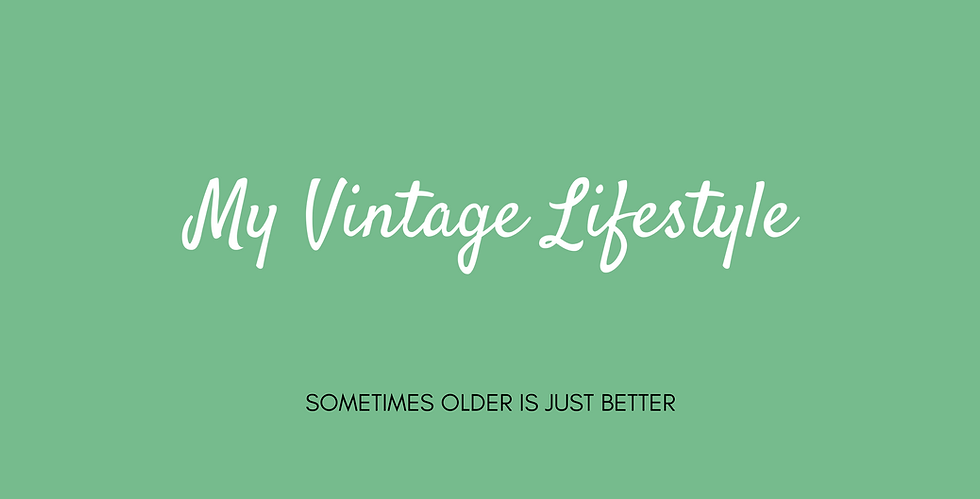Essential Lifestyle Questions: Finding Your Authentic Path
Understanding lifestyle questions and their importance
Lifestyle questions serve as personal compass points that guide our daily choices and long term decisions. These fundamental inquiries help us align our actions with our values, bring clarity to how we spend our time, energy, and resources. Quite than float through life on autopilot, ask thoughtful lifestyle questions allow us to create intentional paths that reflect our authentic selves.
The power of lifestyle questions lie in their ability to cut through societal noise and external expectations. When we pause to consider what sincerely matter to us, we frequently discover surprising insights about our priorities and preferences that may differ from conventional wisdom.
Core questions about purpose and mean
At the heart of lifestyle exploration are questions about purpose. What give your life mean? This isn’t about grand achievements or public recognition, but quite about identify what make you feel fulfil and connect.
Consider these purpose focus questions:
- What activities make you lose track of time?
- When do you feel virtually alive and engage?
- What contribution do you want to make to others?
- What would you regret not do or become?
- What legacy do you hope to leave backside?
These questions don’t require immediate or permanent answers. They serve as ongoing prompts for reflection as you grow and change. Many people find that keep a journal dedicate to explore these questions yield valuable insights over time.
Work-life balance considerations
Work occupy a significant portion of most adults’ lives, make questions about career satisfaction and work-life balance essential to lifestyle design.
Key questions in this domain include:
- Does your work energize you or drain you?
- How much of your identity is tie to your profession?
- What boundaries do you need between work and personal life?
- Is your current job align with your core values?
- What would an ideal workday look like for you?
The answers might reveal the need for career adjustments, from minor tweaks like request flexible hours to major shifts like change professions. Remember that work-life balance look different for everyone — some thrive with clear separation between the two, while others prefer integration.
Health and wellness priorities
Physical and mental wellbeing from the foundation upon which all other lifestyle elements rest. Without health, other pursuits become difficult or impossible to enjoy.
Essential health relate lifestyle questions include:
- What forms of movement bring you joy?
- How does your current diet make you feel?
- What practices help you manage stress efficaciously?
- How much sleep do you need to function optimally?
- What self-care activities restore your energy?
These questions encourage a personalized approach to wellness instead than follow generic advice. The virtually sustainable health practices are those that align with your preferences and circumstances. For instance, someone who dislike gyms might find their exercise joy in hiking or dance rather.

Source: buyquizquestions.com
Relationships and community connections
Humans are social creatures, and our relationships importantly impact our quality of life. Examine your social needs and boundaries help create a supportive network that enhance kinda than deplete your energy.
Consider ask yourself:
- Which relationships systematically leave you feel better?
- How much social interaction do you need to thrive?
- What boundaries would improve your relationships?
- Do you’ve people who support your authentic self?
- What communities align with your values and interests?
These questions oftentimes reveal the need to nurture certain relationships while create distance in others. Quality broadly matter more than quantity when it comes to social connections.
Financial philosophy and resources
Money influences lifestyle options in significant ways, make financial questions crucial to lifestyle design. Kinda than focus entirely on earn more, consider how money serve your broader life goals.
Meaningful financial questions include:
- What does financial security mean to you specifically?
- How do your spending patterns reflect your values?
- What trade-offs between time and money feel worthwhile?
- What possessions sincerely enhance your quality of life?
- How much is” enough ” n various life categories?
These reflections frequently lead to adjustments in spend priorities, savings goals, or career choices to advantageously align financial resources with what matter virtually to you.
Environmental considerations and living spaces
Our physical surroundings deeply affect our mood, productivity, and overall wellbeing. Whether you live in a bustling city apartment or a rural homestead, your environment should support your lifestyle preferences.
Key questions about your live environment include:
- Does your home energize or deplete you?
- What elements in your space bring you joy?
- How does your location affect your daily activities?
- What’s the right balance of comfort versus simplicity for you?
- How does your live situation impact your environmental values?
The answers might point toward decluttering, redecorate, relocate, or adjust your approach to consumption and waste.
Time management and priorities
Time is our about limited resource, make questions about how we spend it specially valuable. Examine time allocation oftentimes reveal disconnects between stated priorities and actual behaviors.
Productive questions about time include:
- Do your calendar and to-do list reflect your stated priorities?
- What activities could you eliminate without miss them?
- When do you feel rush versus spacious in your schedule?
- What deserve more of your time than it’s presently got?
- How might you reduce time spend on autopilot?
These reflections oftentimes lead to practical adjustments like schedule priority activities initiative, create boundaries around technology use, or simplify commitments.
Personal growth and learning
A fulfilling lifestyle include ongoing development and curiosity. Consider how you approach learning and growth reveal opportunities to expand your horizons.
Growth orient questions include:
- What skills or knowledge areas intrigue you presently?
- How do you prefer to learn new things?
- What perspective different from yours might be valuable to explore?
- What personal limitations would you like to overcome?
- How do you process and integrate new experiences?
These questions might inspire formal education, self direct learning projects, travel experiences, or conversations with people from different backgrounds.
Spiritual and philosophical dimensions
Whether through organized religion, secular philosophy, or personal spiritual practices, many people find that address existential questions add depth and meaning to their lives.
Spiritual and philosophical questions might include:
- What practices help you feel connected to something larger than yourself?
- How do you make sense of suffering and challenges?
- What values serve as non-negotiable guideposts in your life?
- What rituals or traditions provide structure and meaning?
- How do you nurture your inner life?
These reflections oftentimes lead to establish or deepen practices like meditation, prayer, time in nature, philosophical reading, or community involvement.
Creativity and self-expression
Creative expression fulfill a fundamental human need, whether through traditional arts, problem solve, or personal style. Examine your creative outlets reveal opportunities for greater fulfillment.
Questions about creativity include:
- How do you express your unique perspective?
- What creative activities did you enjoy as a child?
- Where do you feel free to experiment and play?
- What forms of creation energize preferably than deplete you?
- How might you incorporate more creative expression into daily life?
These reflections oftentimes inspire new hobbies, the revival of abandon interests, or find ways to bring creative approaches to work and relationships.
Implement changes base on your answers
Answer lifestyle questions is valuable merely if it leads to practical adjustments. Instead than attempt wholesale life renovation, consider these implementation approaches:
-
Start with small experiments.
Test potential changes before make major commitments. -
Focus on one domain at a time.
Try to change everything simultaneously typically lead to overwhelm. -
Create environmental supports.
Modify your surroundings to make desire behaviors easier. -
Build accountability systems.
Share goals with supportive people or create regular check in processes. -
Expect adjustment periods.
New patterns typically feel uncomfortable before become natural.
Remember that lifestyle design is an ongoing process, not a one time event. Regular reflection help you adjust as circumstances and priorities evolve.
Navigate external pressures and expectations
One of the greatest challenges in authentic lifestyle design is differentiated between your genuine preferences and external expectations. Social media, family traditions, and cultural norms all exert powerful influence on our choices.
Questions to help navigate these pressures include:
- Would you make this choice if no one else would always know about it?
- Whose voice of criticism do you well-nigh fear when consider changes?
- What” sshould”” you regularly impose on yourself?
- Which parts of your lifestyle bring genuine satisfaction versus impress others?
- What traditions or expectations feel life giving versus deplete?
These reflections oftentimes reveal opportunities to release obligations that don’t serve your wellbeing or to find compromises that honor relationships while maintain personal authenticity.
Lifestyle questions for different life stages
While core values frequently remain consistent, lifestyle questions evolve as we move through different life phases. What work in your twenties may need adjustment in your forties or sixties.
Young adults might focus on exploration questions:
- What experiences will help me will discover my preferences?
- What skill should I develop forthwith for future flexibility?
- How do I balance adventure with build foundations?
Midlife adults frequently prioritize integration questions:
- How can I align my various roles and responsibilities?
- What needs prune to focus on what matter most?
- How do I honor both achievement and relationship needs?
Older adults often emphasize legacy and mean questions:

Source: socialmediacontent.co
- How can I share what i’ve learned with others?
- What bring me joy independent of productivity?
- How do I want to use my remain time and energy?
Recognize these shift priorities help create lifestyle adjustments appropriate to your current life stage.
Conclusion: the ongoing journey of lifestyle design
The well-nigh valuable lifestyle questions don’t have permanent answers. As you grow, will learn, and experience life, your responses will course will evolve. This isn’t inconsistency but quite a sign of healthy adaptation and development.
Consider establish regular reflection rituals — mayhap seasonal reviews, annual retreats, or monthly check ins — to revisit core lifestyle questions. These structured pauses prevent drift and ensure your daily choices continue to align with your evolve values and circumstances.
Finally, the purpose of lifestyle questions isn’t to create a perfect life but kinda one that feel authentic, meaningful, and align with what matter about to you. The questioning process itself oftentimes prove equally valuable as any answers you discover, keep you engage, reflective, and intentional about how you live.



